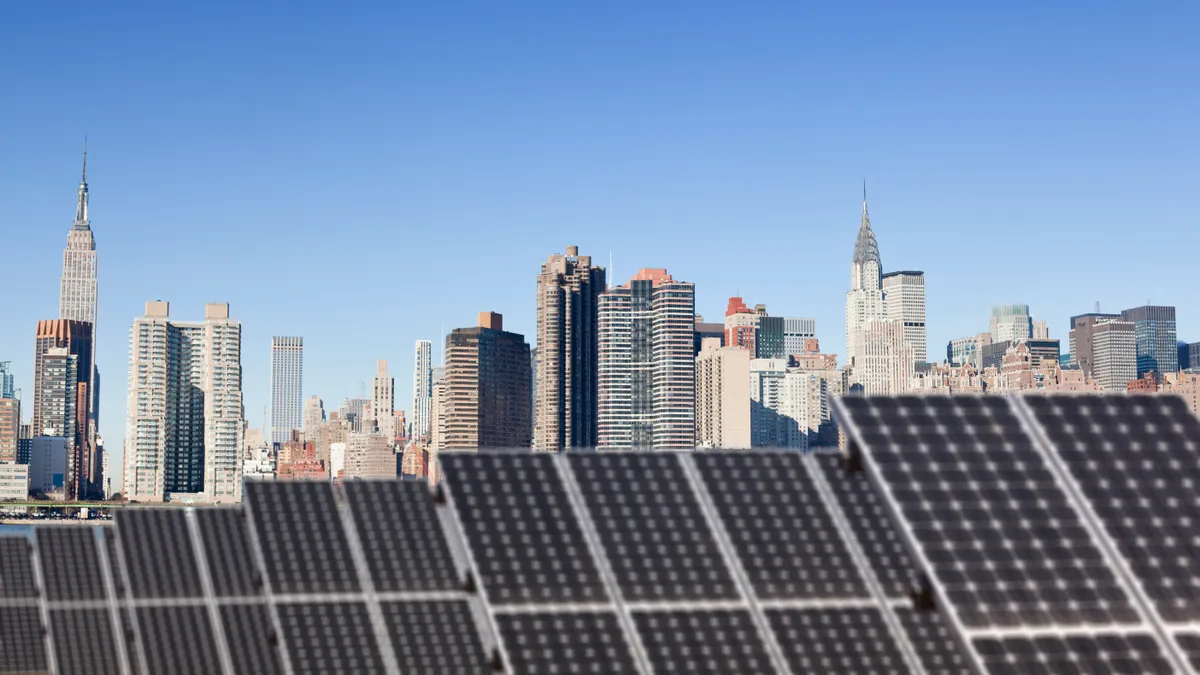Dive Brief:
- Purchasing activity declined 39.3% in North America during the second quarter of 2020, according to GlobalData, which attributes most of the slump to uncertainty caused by COVID-19.
- Corporate power purchase agreement (PPA) activity slumped to just 4.3 GW in the U.S. during the first half of 2020, according to a separate report by BloombergNEF. Despite the nearly 30% decline in activity, BloombergNEF reports that demand for renewable energy now exceeds supply by a wide margin.
- Uncertainty caused by COVID-19 has prompted many businesses to hold off on making long-term decisions about energy procurement, BloombergNEF senior associate Kyle Harrison says. However, companies continue to make sustainability pledges, committing to buy far more renewable energy than developers can currently supply.
Dive Insight:
While other countries such as Taiwan and Brazil announced major energy projects during the first half of 2020, the U.S. is one of a handful of countries where COVID-19 has caused a major decline in energy industry activity, according to two independent reports.
The reports, by GlobalData and BloombergNEF, put the decline in U.S. PPA activity due to COVID-19 in the range of 30-40%. China, India and Mexico have experienced similar effects, according to BloombergNEF.
The disparity between the U.S. and nations that have seen continued activity can largely be attributed to scale, according to Harrison. In these smaller markets, one or two deals can produce a significant bump in that nation's activity, and many of these influential deals have been in the works for years.
The U.S. usually sees more consistency in terms of PPA activity, so the drop due to COVID-19 is more noticeable.
The bright spot in industry news for the first half of the year, according to Harrison, is that demand for renewable energy continues to grow, rising with the tide of companies making commitments to reduce their carbon emissions.
Some 21 companies made 100% renewable energy pledges during the first half of 2020, bringing the total number of firms with such a goal to 242, according to BloombergNEF. The growth in clean energy demand generated by these commitments has outstripped developer's current ability to install it, which Harrison believes bodes well for the renewable energy sector.
The increased demand may temporarily increase prices, he said, but long-term it is likely to inspire innovative solutions designed to meet the need.
"You have a whole universe of companies setting emission reduction goals and ... sustainability is becoming more prominent in corporate cultures," Harrison said. "That creates opportunity for developers in this space."
However, U.S. companies also remain reluctant to act on these commitments at present due to uncertainty about what post-COVID markets and energy needs will look like. The pandemic decreased commercial energy consumption, which could have long-term ramifications with respect to emissions goals. Decreased energy consumption inherently decreases emissions, and even companies with 100% renewable energy goals may hold off on buying until they get a better picture of what the future holds.
"If demand drops 20-30%, you don't want to buy more power than you need," Harrison said. "Companies are taking a wait and see approach."














